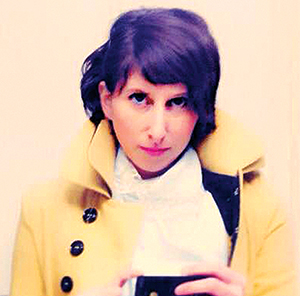Neglected Philosophers

Andrew Janiak, an associate professor at Duke, led a sixperson team of students, faculty and staff—in association with colleagues at Columbia and the University of Pennsylvania—to launch Project Vox in response to a “vicious cycle”: Many works by women in early modern philosophy are out of print, untranslated or left out of anthologies and course syllabi, making it diffiicult for graduate students to study them extensively. So, as these students become professors and published authors, they continue to neglect these works in their teaching and writing. The male domination of the field continues to this day, with women receiving only about 30 percent of all philosophy bachelor’s degrees and doctorates nationwide.
To help remedy this, the Project Vox website, which went live in March, includes a growing body of biographical information, sample syllabi, lesson plans, images and a timeline to contextualize the lives and ideas of Cavendish, Conway, Du Châtelet and Masham. Scholars around the world can add and share content.
As a digital humanities assistant for Duke University Libraries, Wallace says, “My focus was to honor the text and images with effective HTML, CSS, content management system and design elements, to make the content most easily and clearly available to the viewer.”
As she worked, Wallace—who had no previous background in philosophy—enjoyed reading the texts and learning about the female philosophers. Wallace is also studying math and statistics while working toward her MFA in experimental and documentary art. “It was so exciting to be reading about logic, proofs and infifinity in a math class while also reading about it in these texts,” she says.
She credits the wide variety of courses she took at Amherst with allowing her to delve into the “intellectually rich” and highly interdisciplinary work of Project Vox. And she hopes someday “to teach design, illustration, programming, information visualization, poetic essay and other such classes” in a similar environment, where “students are encouraged and supported in their curiosity to study multiple subjects in order to bring intellectual rigor to a focused problem.”
Project Vox continues to develop and publish new content. Its work has been touted in The Washington Post, in The Atlantic and on Feministing.com. Businesswoman and philanthropist Melinda Gates, a personal hero of Wallace’s, has tweeted her support.
The team even received a letter from a scholar in England who had read about Project Vox in The Times and had just written a report on Conway that she was happy to share. The scholar was an 11-yearold girl.